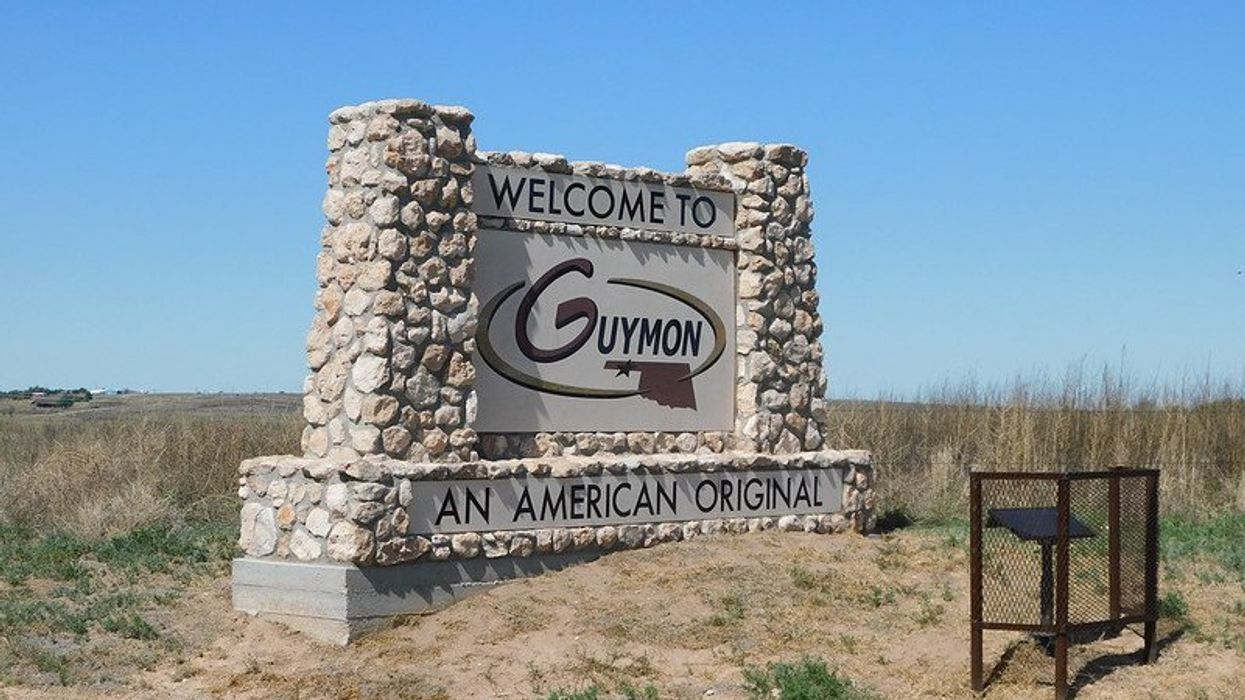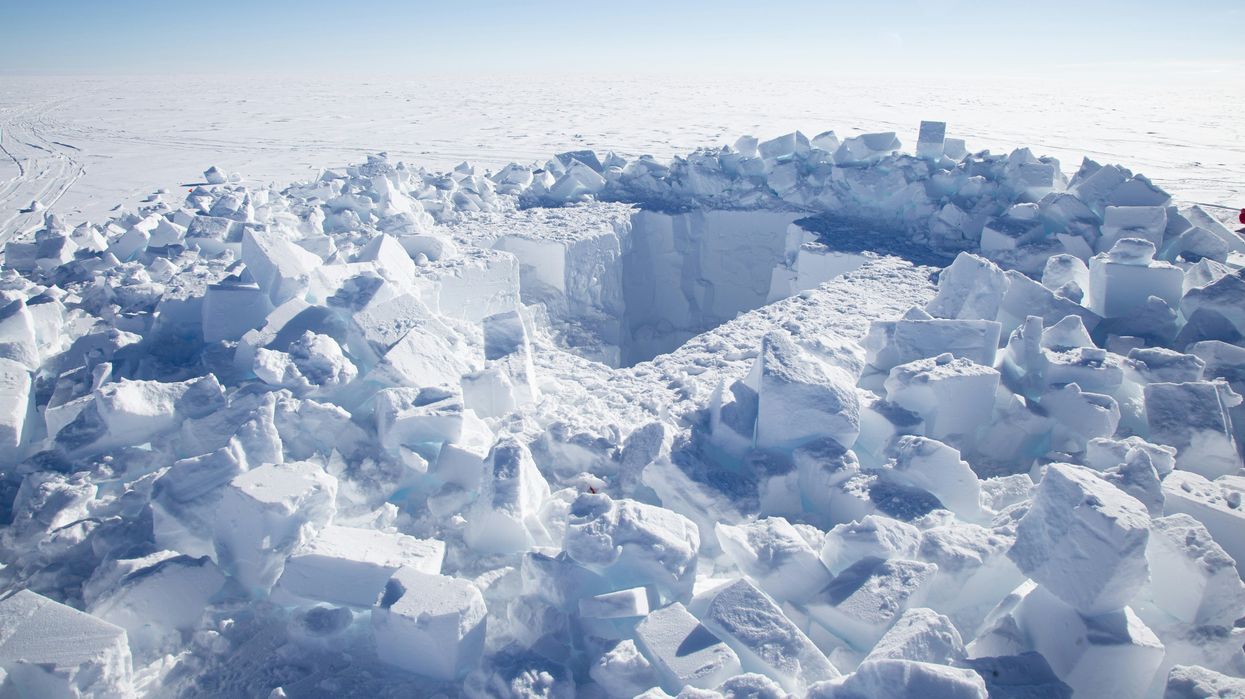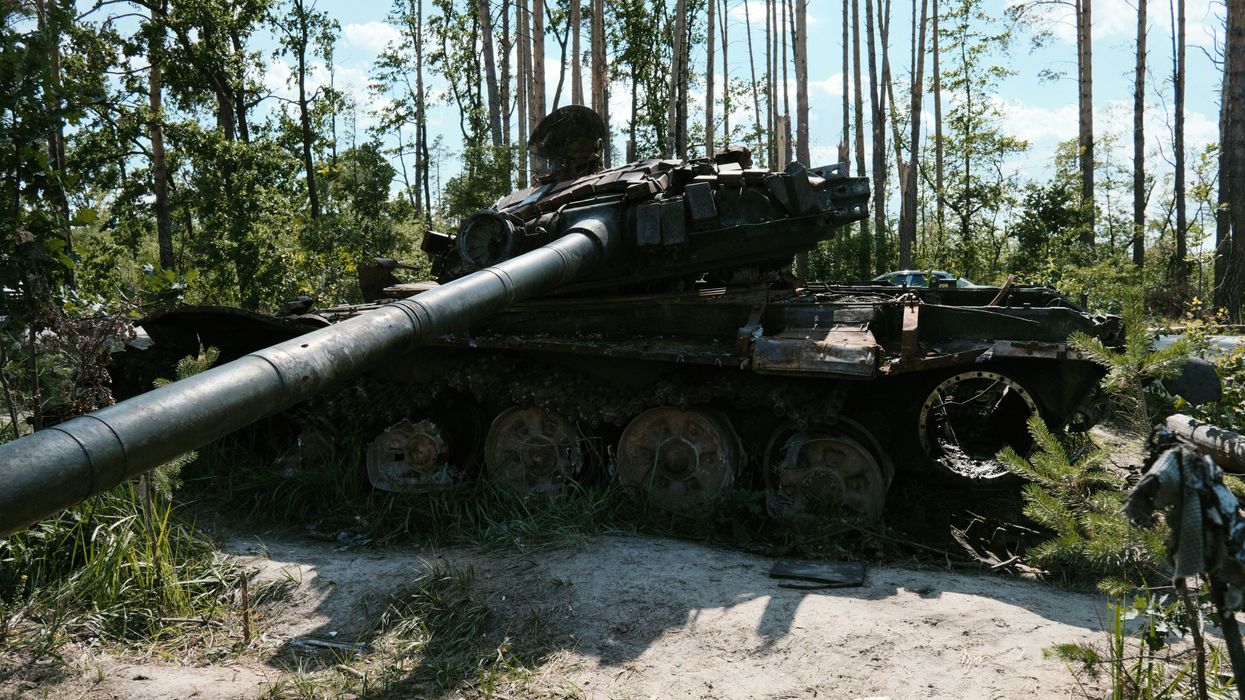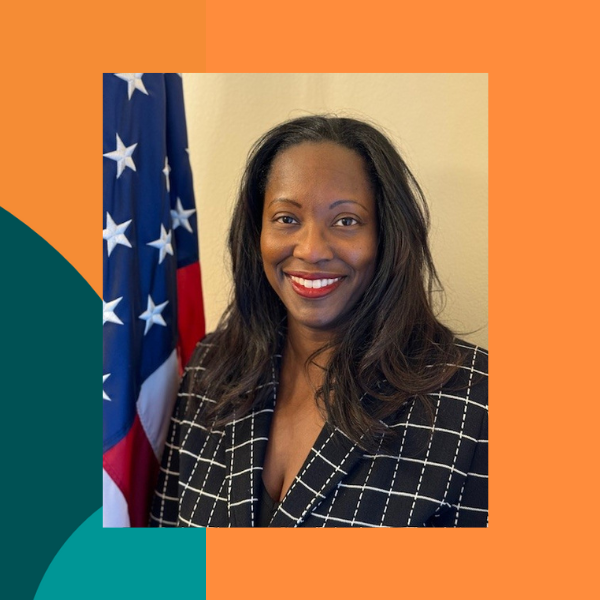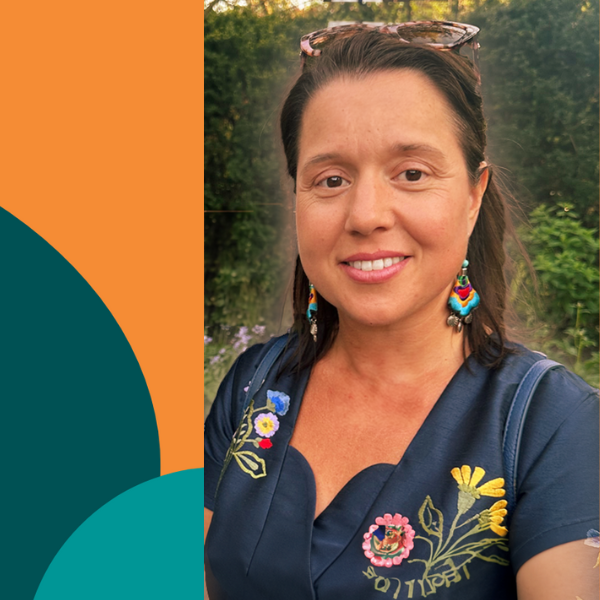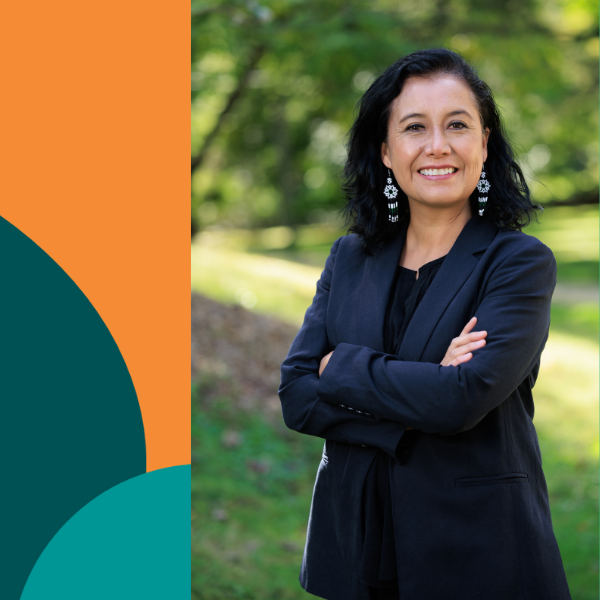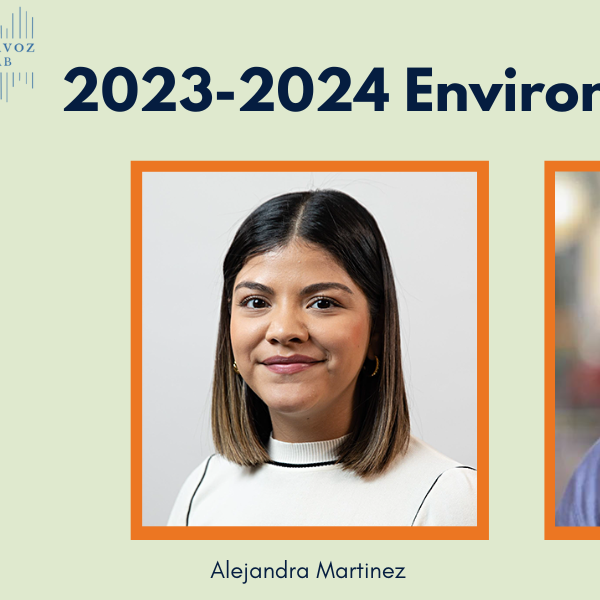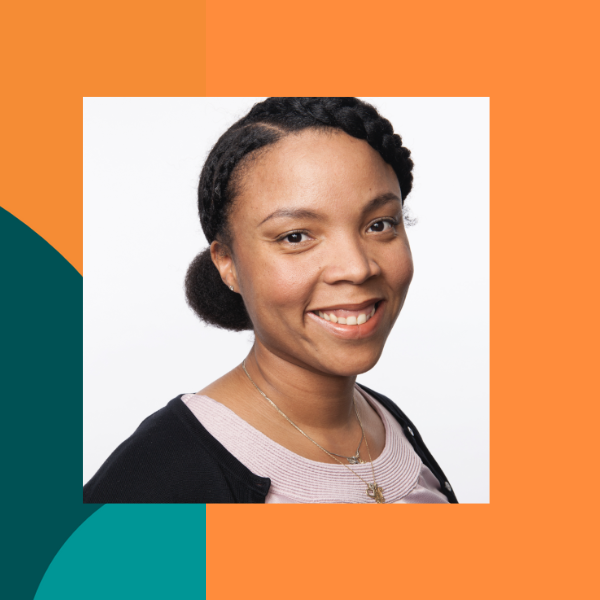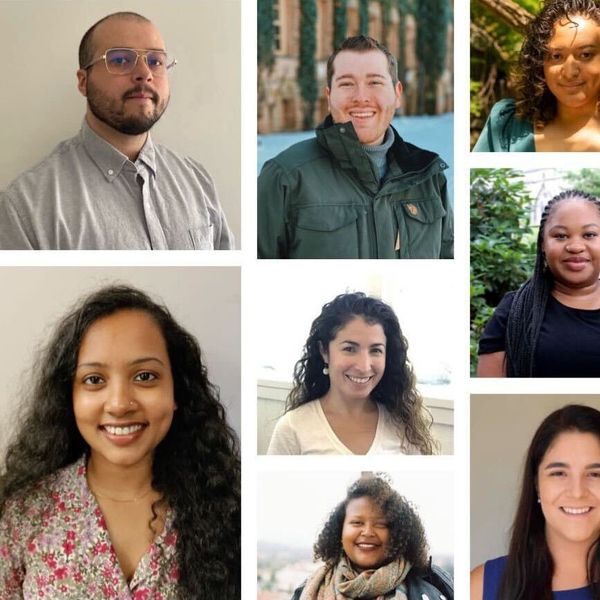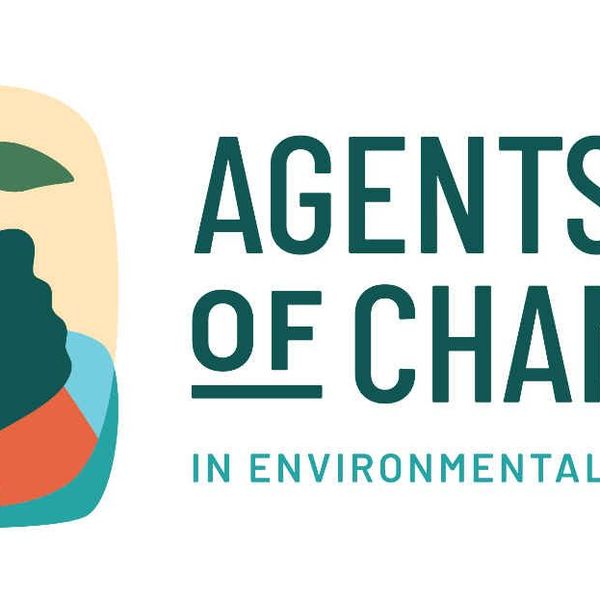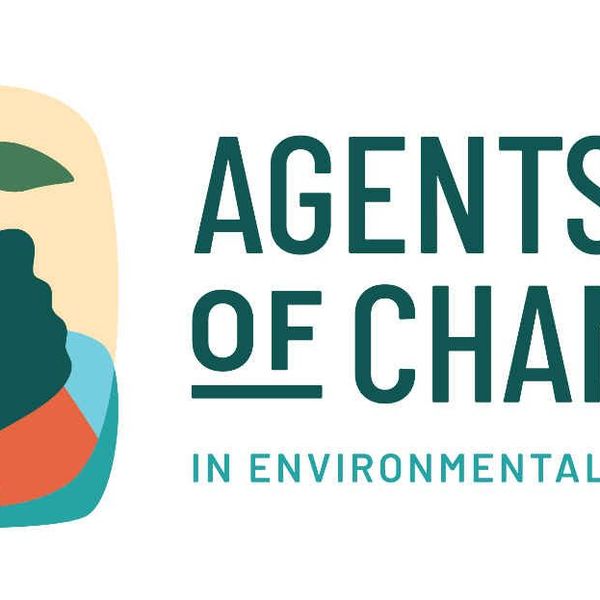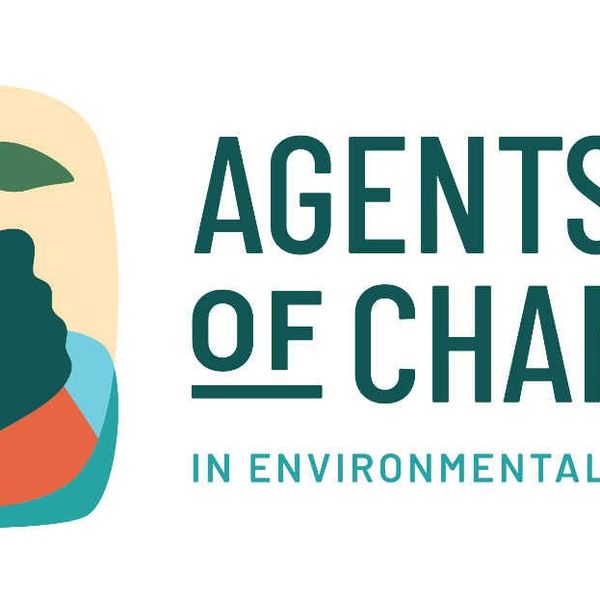Ans Irfan joined the Agents of Change in Environmental Justice podcast to talk about his path from Pakistan to public health—and how the field can and should place equity and justice at its core.
Irfan, a public health scientist and lecturer at George Washington University, was part of the first group of fellows for Agents of Change, an ongoing series featuring the stories, analyses and perspectives of next generation environmental health leaders who come from historically under-represented backgrounds in science and academia.
Irfan wrote about farmworkers' rights in his essay, New country, same oppression: It's time to bolster farmworkers' rights.
The Agents of Change in Environmental Justice podcast is a biweekly podcast featuring the stories and big ideas from past and present fellows.
You can listen below or subscribe to the podcast at iTunes, Spotify or Stitcher.
Transcript
Brian Bienkowski
Ans, how are you?
Ans Irfan
I am doing fantastic there is a pandemic I'm still six feet above ground, life is wonderful.
Brian Bienkowski
Excellent yeah I know that's kind of top of mind with everybody we talked to you right now. I'm really, I'm really glad you can make time today your, your essay was it really resonated with me the first time around I live in a rural area and of course wrote about farm workers rights and farm workers health. So I wanted to start there from your essay I know that you were you grew up in a Pakistan farming village you said and I was wondering if you could tell me a little bit about your journey from growing up, working there to coming to the US where you're at now.
Ans Irfan
Yeah, certainly. So I grew up in a farming family and it's so I think like. One thing I just want to highlight for me it's like you've been doing a lot of that work that's related to environmental justice worker rights health equity and so on. But you didn't have the language for it. So, so my experience really was that sort of like, I didn't know that these were the terms for those situations, but growing up in a farming family were like you know they're your water is Russian for your agriculture itself and that sort of impacts your crop yields and so on. And you know, I, you never get that sort of education or exposure to be able to draw the connections with climate change for instance you know that why is that that that thing is happening. So it was sort of like you know all sorts of like intersections of all sorts of health inequities from systems perspective, we're, you know, a your Pakistan is one of those countries that can and has one of the largest canal network to redistribute river water for agricultural purposes, especially in the area where I grew up, and. But then the government controls how much they can extend and then that gets distributed by the farms and how much land you have and so on.
So there was always that issue of, you know, in summertime and so on, where you would have rationing of water and that would impact your crop yields. And that had all sorts of repercussions from food insecurity to, you know, financial insecurity and so on. But you're not able to sort of like think through it because you didn't have like again like I said a moment ago exposure that it's tied back to climate change. And then, growing up in Pakistan also us started. One of their many wars and interventions around the globe in Afghanistan, which is a neighboring country to Pakistan, and that ended up having Pakistan being one of the largest refugee hosting countries, because of the US initiative and more. So socially and culturally I grew up with that context without having the language and understanding and more sophisticated terminology for a lot of that stuff. But we had a lot of fun workers with the, you know, like a lot of social pressure into Pakistani culture is fairly hospitable so like, they were very open to it but end of the day when it comes to resources and your government is spending more resources, much like the US government towards military action and militarism versus social programming. That kind of creates that tension so you know there were those workers that you saw them, not only as food vendors, but also agriculture workers and so on, that they actually had no rights whatsoever. Like if you could, you could sort of like you know they would do the job. You could deny them wages, and there were rarely any repercussions for it you know and interestingly enough, like it's quite fascinating that a lot of those challenges in agriculture world farm workers, they're very similar in the United States, even though I've been here for a very limited time and I don't claim that I do community engagement work here in the US anyways. Not yet. Anyways, but those challenges are very standard like you know there are language barriers, much like they're in the US context that's majority of them speak Spanish majority of these folks are undocumented, and in our social context, there's always this narrative in the United States that look at these illegal migrants, whatever that means. coming in and taking our jobs and whatnot. When in reality there really is that if it wasn't for this particular community, our entire country would shut down, you know like we would not be able to literally feed ourselves you know, and that's something that we don't sort of think about as much. So I always encourage people to whenever they're consuming there. I live in DC and a lot of people here are very privileged in their bubbles. You know, and they're very well educated and with very good intentions, not the most critical people I would say, so I'm always trying to encourage them to think about those farmworkers when they're consuming their fancy little salad somewhere.
So yeah, like, but to long story short I grew up there, and I ended up I had some scholarship ended up for medical school back in China. And that was partly because they have jokingly say I went to med school because I'm brown and my parents told me so.
And that's mostly because they culturally, you either have to be a physician or an engineer. There's nothing in between.
Throughout med school I was going to pursue interior designing after that, because that's something I enjoy. But I did some of the underserved related work back in China with the warrior community, which I do want to highlight in this just because they have the platform that there's an active genocide going on for the community right now where the global community has been largely silent, including the United States. And it's a, it's a majority minority situation there so their majority in that area but minority in China and Chinese government is actively committing cultural genocide at the moment for that particular community. And after moving from China and worked in Pakistan as a physician in turn for about a year. That's where I got to work closely with a little bit of brick factory workers, a little bit of Transgender Health, and I really fell in love with it, and I could never and it's till this day I cannot. Sort of like tell you that there is this one particular area of interest I have like it's just because public health is so interdisciplinary and touches everything especially with the climate change and environmental health context. It's a all of it that I just enjoy very much so. And I was fortunate to have my family moved here back in 2009, and after moving here. I just had been in public health and it's my eternal love.
Brian Bienkowski
You actually kind of led me into my next question so you did write about farmworker health for us and it seems like early on that kind of shaped you and maybe it's something you were paying attention to, but I've seen your writing since and some of the things you're researching and it does seem like you kind of cast a wide net when it comes to public health, environmental health, environmental justice. And I'm wondering kind of what are some of the other issues that are. Sounds like all of them, but what are some of the issues that are maybe kind of really sticking to you right now that are keeping you up at night.
Ans Irfan
Um, so I want to say like keeping me up at night I think like at the moment, I knew that folks try to avoid anything that to closely resembles politics. So currently, just because we barely survived fascism. And a few months or weeks ago.
And I just want to sort of like you know point that out that there was a lot of activism and I'm not saying it was disingenuous you know like it was very genuine like people were concerned. But I just want to uplift that part that a lot of those issues were there before a certain administration came into power. So that's what I mean by structural issues that the US society is just so individualistic people who are very well meaning and often talking about social determinants of health and structural issues and systematic issues and whatnot. So they would talk about those issues but end of the day, almost always their interventions are individual level. And that's just not going to cut it, you know. So what keeps me up at night is a that people are going to get complacent and they're not going to push the upcoming administration as hard as they should be pushing. I will always maintain that public health is very political. We are not partisan, those are two different things and we should not be complaining about the two, we should be thinking about how to develop certain frameworks or talk about these and, you know, have those conversations openly and frankly, without pushing people away, who may disagree with us on certain opinions.
But this is something I think like that's that's a fear of mine that the upcoming administration, just because of the complacency of people like myself and other people in academia is going to lead to those exact same conditions that give rise to the previous administration to begin with. So that's one of my concerns and the second thing really is they climate change, you know, climate changes. Almost all of my work has some in some shape or form has, climate change, and health equity related focus into it and climate change is a multiplier of social inequities. And that's something that I think like we still do not think as a society that it's as big of a deal as it actually is.
And by that I'm not talking about the general population. I understand that we live in a society where we're just so forced into daily grind that people don't have time to take time out and think about these issues in a critical way and I get it, but for people who are in academia and so on like this like sort of like you know, intellectual, or intellectual one person's as I like to call them with their PhDs. There are like what three to 5% of people have terminal degrees in this country so it's those people who would say in one sentence that oh it's an existential threat, but when you talk to them about solutions that almost never meet that level, what you just described the problem to be right like you know then they start talking about pragmatism and incremental ism and so on. And we are a filthy rich country. And, like I it's it and that's there's no question about it, you know, like it's just a matter of where we focus our advocacy efforts and whether or not we actually think that it's a big enough issue that's going to impact our society and across the globe, not just the United States but more importantly in the US case, when we think about the intersectionality part of things. It's almost always racial and ethnic minorities, or, you know, women or LGBTQ population and so on, who have historically faced vulnerabilities because of structural issues like racism, they're going to pay the biggest price for climate change and it's, and I just want to say that like, it's not that they're going to but they are currently at the moment you know indigenous populations is an example of it. So that's one of the things that I just want to say the like, you know, regardless of like which particular area you pick.
Climate change is almost always going to exacerbate those particular disparities and inequities. And they're, they're sort of like you know there's a, there has been a long debate between climate mitigation and climate adaptation and people have been pushing back against climate adaptation because they oh it's going to take away from mitigation efforts and so on. But the reality there is communities are suffering. Now, by no fault of their own. So we need to sort of like, think about it a lot more aggressively. Instead of doing yet another theoretical exercise, proving yet another point that we've done time and time again. Perhaps we should think about that we have this all this research. How do we take it and then apply it into policies and practices where we can adapt our society and our systems in a more equitable way because they most of these systems were not built for most people, who are not white in the United States, you know, like they were built by white people for white people. Thanks to colonisation and now we've come around to calling this stuff like using all sorts of like sophisticated terms about that stuff. So, you know, take the end of the day, all of the systems are not conducive to a large chunk of this country's population and we need to have a serious conversation about how do we go back to the drawing board and rebuilt. A lot of our society with the threat of climate change that again was caused by us.
Brian Bienkowski
So when you think about the inequities you talk about especially for women, people of color LGBTQ communities. You know I think climate change for so long was framed it started what the polar bears right and then we started talking about things like food security maybe crops and heat you know I'm thinking, heat stroke heat events and things like that. What are some of the more kind of insidious public health threats. For these vulnerable communities in particular, and maybe to build on that taking that next step, what are some of your big ideas, you know, taking the research out of the journal into the public sphere and whether it's through policy or other other ways how can we start to remedy some of these ills.
Ans Irfan
Yeah, I think like it's the suit, we hear this term about critical thinking all the time in public health literature and at schools and so on. But often people are not thinking about things as critically as they may claim. And I'm not.
I know I sound very lecture-y from but that's not my intention I'm just pointing out, what have you observed. And that's partly the function of the cultural shock that I had after moving to the US, that just how uncritical people were here, because you know you have a certain persona of the United States out in the outside world of this like super advanced society and have like, Wow, that's a shocker.
But I think they are. So thinking about like you know more insidious stuff like I would just want to point out that like, it's like, I don't think like we need to reinvent the wheel, we just need to for the most part, and that's why like a lot of my work is sort of like observational and it's like writing commentaries because I went back to academia to learn the language and understand the methodology really well so I could comment on a lot of this social structures and a more somewhat more confident way I suppose.
So it's thinking about like, you know, like, translate intersectionality like operationalize it, and when we operationalize it Then you really begin to think about populations, like for instance transgender population and prisons right. We still have in the United States, you know modern form of slavery, we just call it prison labor, that doesn't take away whether it actually is you know from the 13th amendment exclusion. So when we think about that thing like in and out when you add all those layers off like who these populations are, this is just one example of a number of other examples out there but just in, with respect to our time here to transfer gender population and who are imprisoned. And then like you know they have to work, and then they have to work in this climate column, climate change related variations that there, which are not conducive to their rights or protections for instance, right, the inside the prisons or outside the prisons right wildfires were happening floods were happening. We often bring people who are already in prison and then expose them to dealing with the aftermath of a lot of these disasters right and then like we're not extending the same level of workers protection to this population as we would be to other people, which in itself is a pretty abysmal situation to begin with.
And then there's a whole issue of climate adaptations, you know like your prison population like our prisons are not adapting to, you know, like climactic conditions, even though that's, that's not to say that they should be thinking about it we should really be thinking about how do we abolish prisons and not so much how do we fix this system and sustain it. But immediately urgently you know there have been cases off like people dying because of like exposure to heat because of their comorbidities and so on. And these are really sort of like you know like fundamental basic human rights issues like i i don't think like I'm asking for a lot like I'm just like end of the day like y'all was sound like, I don't think like I'm sort of like you know, saying anything novel or earth shattering I'm just observing and I'm just asking for basic human dignity for a lot of these people. So that's where sort of like you know the idea of like climate change comes in, and then like I think like on the grand idea, like I have a number of bad ideas and I used to joke about the universal health care and basic income would be a good start.
But, sort of like immediately I just want to see the like, I think, like, academic structures, mostly because like I'm, you know being a doctoral student and also a faculty member I'm involved with some of that part. And a lot of times they, these are the folks who produced this research. I think we need to hold each other accountable, and a little bit more than we do at the moment. And that also involves asking the hard question and not in a confrontational with the like asking like why are you doing what you're doing you know like, wow, is it going to affect anything beyond a few citations that you're gonna get you know, or 10 people reading it. And then we think about like, you know, any of the work that gets done. And then when we sort of like you know reform a lot of our structures within academia within NIH and so on and tie that back to impact. And that impact being defined community related work that did it lead to where is it going to lead to some change in practice in terms of policies in terms of programs and so on. How many lives is it going to improve instead of this like some hyperbole that you know that's what researchers would do right like and they would just they conduct this million dollar study, and then NBN like you know their conclusion is that it's going to improve population health and that's the magical part. That's the black box that no one knows how no one knows when or any of it. And I think like we we are collectively intelligent enough that we can develop and we should be developing those frameworks they, what are those sort of like frameworks to think about that part and the other thing is the qualitative research part. If you go back home here a couple of decades ago, people were not as comfortable with that part as they are a little bit now. And I think we're gonna bring that up to see. I know that this sounds like super basic and cliched but a lot of times, a lot of our research and that entire narrative is almost always focused on what it is, but it doesn't tell us anything about the context right like you know and that robs people off their humanity and dignity and like never provides that broader context in which we operate.
So, and that's something that I myself have been sort of like questioning myself and like thinking about it more. In fact, like I'm probably gonna send an email to my very lovely dissertation chair to maybe do one of my dissertations on qualitative work you know like related to that instead of sort of doing more quantitative work because it's always telling you what is. So I would encourage folks to like you know again like I'm targeting into academics, that think about that bigger context that like you know what is your impact like, how are you going to measure it you know like it's like that's a really important critical question and that's where I think like, people would begin to appreciate the value of mixed methods and qualitative research and so on. And for the broader population rest of my us don't like to use the term citizens. People who live in the US, the rest of us. I would just focus on that advocacy part of it really matters like you know hold your, the politicians who you voted for regardless of the party, hold their feet to fire. Ask them and like Demand Action because like that's our current system for good or for worse, so I would just say really encourage them to and reach out to academics, you know like, ask them very openly How can you support us right and academics should be reaching out to the communities as well that how can we support you in your advocacy efforts they beat at the federal level local level state level. There's a lot that happens in down ballot races. So I would just really encourage people to sort of like focus on that part and you know those folks who don't think their voice matters like just look at the results like end of the day like it's always a few 1000 that make a huge difference in terms of like you know who gets to be where. But then, like when they are there, like your story shouldn't end there your story should start at that particular point that like you know now, you will meet and and that's something like you know in the in the US context like again like I highlight that and I'm still rather new to the United States and I'm still learning the culture and everything but for all my years here in the US, you know like, its democratic party for instance, has been for the longest time, they're the ones who allegedly leading the charge on climate change in Swan and black women have historically came out and came through to save this part you from itself, and put them in positions of power and end of the day, almost always exclusively their policies were not conducive to that particular community. And that's something that I think like that's that that owners should not be on the community that that onus should be on the rest of us that we go back and hold on that now your policies should be more humane and more conducive to the population who put you in poverty to begin with. So that's what I sort of like and that's just one example and you could sort of like you know, do the exact same sort of analysis for a republican senator and so on. But just the case I'm trying to make is that public health does not operate in isolation. It is inherently tied with politics, and we should not be shying away from that particular part and we should be critical thinking about it, that when these people are empowered that's when our real work starts. And you know, instead of using all sorts of like, and I've seen this they people become experts in basically in apologetics and I sit there and think I'm like wow you have a degree in divinity, it seems, because like, instead of like pushing people that know you need to do more. And if it was the case for a country like Pakistan which has no resources, I get it, that like you don't have resources in our case in the United States. It just a matter of how do we redistribute our resources, as opposed to whether or not you have those.
Brian Bienkowski
Right. And I want to get on to science communication and your writing and some of those because I kind of view, the lay person communication that the writing you're doing is kind of that bridge between the science and the action right the advocacy the political will. But before we get there I have a question I like to ask and it is I want to before we move forward in your life, fast forward here is what was the defining moment that shaped your identity. I know you bounced around a little bit geographically and topically it seems like and things that were holding your interest so a defining moment that shaped your identity.
Ans Irfan
Oh, I, I'm with you and I've had this conversation before about the usage of social media, and I've only started using Twitter, like a few months ago and that was thanks to Dr. Ami.
And because she pushed me enough to start using it. So this was all to say that I'm a fairly private person outside of my very low opinions.
It's the defining moment for me really was. I'll share one of those with you that I saw when I was working back in Pakistan. And as a physician in turn there. I was setting up this particular program there for MSM population men who have sex with men.
And so the challenge there really was that we had a transgender community. And then close by and we would sort of like in it because it was a community hospital, and evening clinic would not charge them anything So, a lot of them would come visit us at that particular point. And then we also work to provide the URL for a lot of these rest of the community in the area as well. So the challenge there really was or I guess the mystery there really was that we would have this woman who would come in for their prenatal checkup, or during pregnancy and so on. But they would have all sorts of st eyes, and our challenge was that Pakistan is a fairly theocratic society and fairly gendered that they have never left their home. So how are they getting this. These STI is and that's a fair assumption to make. And you can get ascertain it a little bit more after taking the history.
But this challenge there really was that men were having sex with this like transgender community which is, which they work as sex workers and they have a, an Indian Pakistan they have a different understanding of transgender population they call it, third gender.
And so as sex workers, they had virtually no protections whatsoever, or autonomy, to be able to negotiate condom use for instance you know like or any of it because of all sorts of cultural pressures. And so one of the I and I used to volunteer in my evening clinic.
And this one particular person who I was talking to. She. She was a transgender sex worker, and it's it still makes me a bit emotional even though it's not that big of a deal but like, So the way I was talking to her like you know she just like immediately started crying and here I am This in turn I was like okay I screwed up like what did I do. And she was like, No one has ever talked to me with the level of humanity and dignity before. And so, then she was like no Can I give you a hug and I was like yeah like I'm like very huggy touchy, please, by all means, and then like you know she went on to describing her whole story of like growing up as a transgender child and then her family leaving it, leaving her on this particular shrine. And then later on, like, how society treats them and so on. And, you know, like regardless of their work like be in sex work or other type of work they may be engaging in.
So that was really sort of like to me. That's for to this bigger issue that all of this is at the system's level that like, we, we just have this obsession with individual level, focus, and we think that if we just fix the person then things are going to be just Alright, and they're almost never are.
So that was sort of like you know one of the big moments where I sort of like switched from interior designing to public health, that I was like No, it's going to be public health for sure. So,
Brian Bienkowski
Well, that's what a great story it reminds me a lot of. I mean great as in what it became for you I mean heartbreaking on the, on the individual level but it reminds me a lot of doing journalism for years and meeting people who you who are nice enough to have you into their homes to tell their story. And you can tell they are just so happy someone's listening. Because regulators and officials and politicians whomever has no hasn't listened to them, and it's a really big responsibility as a reporter. So I definitely feel you there.
So I did want to get into. So, science communication, which is how I met you of course through agents of change. And it seems like writing and communicating research and ideas is really important to you more so than a lot of researchers I know and I'm wondering why that is and how as a researcher that came to be since it's not often taught, or really incentivized in academia.
Ans Irfan
Yeah.
So I continue to call and consider myself a practitioner, not a researcher.
And part of that is that it's, it's, it's just difficult within academia.
I'm many things conformist is not one of them. And, and part of the challenge is that within academia, there is this like constant pressure to focus on one outcome or one particular thing and then just like do that, till kingdom comes, and I've never been that person especially within public health, I continue to be that kid in a candy shop I very strongly believe that I have the privilege to do something that I love so passionately A lot of people don't, they're doing their work, because it pays their bills.
I'm fortunate to do something that I genuinely am in love with. And and I want to be able to use that for that sort of like in a broader social change, and I think that comes from. And I see myself as the almost as a bridge between these people for, you know, like we can litigate them at a later time at another time like people in academia. We're constantly publishing this they exceptional knowledge out there, they're putting it out there, but it almost never gets translated well I shouldn't say that that's that's a bit harsh. A lot of times it doesn't get translated into practice you know like I give this example like read this, I believe it was a meta analysis.
One of the initial things when I was doing my mph, back in like 2014 or so that the, I think the title is that the answer is 10 years, what's the question and the answer is 17 years, what's the question something to that effect like people can Google it and they'll be able to find it. But they were looking at research when it gets published versus when it actually gets translated into practice.
And my understanding is remember serves me correctly there we're looking at research that was related to Healthcare Management. And I've had the fortune of working in health services management capacity in the past, and if you are working on top of that particular clinic or hospital, you have control over almost every single variable within that particular limited capacity, and you can sort of like control your interaction with all sorts of other stakeholders. So to me, the bigger question was that if it takes you nearly two decades to translate research in that capacity, just how long would it take for public health religion research to get actually translated, where we are often working in a lot of ambiguous scenarios and settings.
So that's where I saw like you know and it felt and it continued to feel very strongly that I, there are people who are doing this stuff and I value them I respect them I want to be able to take their stuff and uplifted. And so that's what I think like their role of science communication comes in, and especially in the US, they were thanks to our rugged individualism, which is America's favorite porn.
Thanks to that, like people think that just because we are a republic or democracy, my ignorance is as good as your knowledge, and I think like that's where the rule of science communication comes in because, like, a lot of times, either we're talking to people as though they're dumb as rocks. And we are questioning the dignity because like we're lecturing them right like without acknowledging precisely what you were talking about earlier, that as journalists when you talk to these folks like no one has listened to them, you know, for the longest time and academics are not immune to that right like when we talk to them. like, often our attitude is holier than thou, and we're just telling people you know what they should think you know like we're still trying to engage them that like there are this like a number of these issues and like this is where we fit in and meeting them where they are.
And especially with climate change, you know, like that's it and I think like it's, it's a big issue of the framing right like you know who do you talk to, how do you talk to them. There are things that may not be important to some people than they are to other people like you whisked out to this conversation you talking about polar bears now.
For a limited time in the US like I know that we don't care about polar bears like it's so I don't know who came up with it. But I'm sure it was well intentioned. Have you tied that thing back to issues that Americans care about like national security climate change is a national security threat. And you could sell, virtually anything in the US if you tagged with the national security. So from an academic perspective, I still don't understand like why issues like public health and climate change which are genuine national security threats are not tooled as such, you know, if it is about reaching a particular population. And I'm not saying that like you know be insidious for disingenuous about it like these are genuine legitimate national security issues you know like our economy basically collapsed because of this pandemic. Why, because our public health systems were historically irregardless of the administration are chronically underfunded, you know like, it's like we're paying the price for wildfires, floods, hurricanes, why because historically, none of the administration's has treated climate change with the urgency and aggressiveness that it deserves. So in all of that. Going back to your question. I think like academics should like you know, be very careful about unintentional about communicating their science and research, back to the communities, because like you know, there are few fields which has the word public literally in their field itself and public health is one of those right. And when we talk about environmental health for instance like even now like people don't understand these terms for very well. Excuse me. Like environmental health is still people think it it to be about tree huggers and so on, you know like, and you could be both. I am at the same time like it is about you know like tied back to the as the mind cancer and someone's grandma dying and so on, you know, like those are real legitimate issues that like you know we should be thinking about and tying it back to and that to me as a science communications failure. And I think like if we, if we and we should train people, almost as rigorously as we do, their other methodological training about science communications. If we are concerned about you know the social justice beyond the performative stuff that we talked about.
Brian Bienkowski
And so, you mentioned earlier, Twitter, and you know I obviously you're doing writings and journals and I saw a piece in the Boston Globe and of course for eh n. Um, but then there's this micro communication that we both kind of share a healthy distrust of all I'm wondering how that's been for you I know you're on Twitter now how's it going on there and are using any other social media to amplify some of your work and thoughts on these issues,
Ans Irfan
Mostly just Twitter, and I would say like even Twitter came about out of deference for us like she is the one I have the utmost respect for. And, you know, like and, and I take good advice from people who are smarter than I am and she most certainly is.
It's been great. But I think it does create, to this day, and I myself I'm like, you know, I still have like rather limited engagement with Twitter itself. But I think it creates this like microcosms where people think that Twitter is rest of the US, and it's not. And that's I think like is is and has been my sort of like one of my fears that, you know like, perhaps we have created yet another bubble for ourselves, where we think that, you know, like our work is not getting done or getting this theme sort of like you know outreach. outside of Twitter worse. So I think that's what my ongoing concern challenge what however you want to frame it is about Twitter itself and its to its you know like and I don't know like if it's a it's a social critique or however you want to call it, but I think like that's generally a challenge in the US, that people are not openly willing to engage with others and Twitter is a classic example of it it's a, you know, like, a lot of times be researchers or so on. It can become like fairly toxic where like people are often mentality of this thing digital pitchforks and torches. Without sort of like you know having an open engaged conversation to it all becomes that how pithy and snarky you can be in whatever those limited characters are, as opposed to that I'm here to do a broader engagement, and send my message out in a way that may be more conducive to a lot of the population out there.
But yeah, I mean I see a lot of value in it. I just, I think like it's, it's just not compatible with my personality otherwise you know like I love people when I'm with them. As you know, I'm a chatting person, but the whole digital part is just I think it's a more soulful personal barrier than anything Twitter related but you should try it, you should try to.
Brian Bienkowski
Well I was on there I was on all of them at one point as a young journalist wanting to make sure I was, um, I was out there. And now I have editor in my title so I can hide and reporters and freelancers. Go out there and promote you know i will say your first point about it not being representative of the public or the, I think that's a really important point you know I know during the selection, depending on what side you are on or who you're rooting for on policy and politician issues, you go on Twitter and you either think the world is ending or everything's perfect. I don't know about you but then I talk to people I live in a rural area and I talk to neighbors and they don't even know what's going on. They don't even know who's running or something you know that they're so far removed and it seems like we're so polarized where. And I think it amplifies that polarization or at least the facade of it.
Ans Irfan
Yeah, yeah. And it also kind of robs us of those like critical discussions that we should be having. And you know because they end of the day like it's you, we can have our viewpoint. And there are certain things which are not sort of like conducive where I suppose like up for debate, you know whatever human dignity and basic human rights are concerned via reproductive justice, Be it LGBTQ rights racism and any of that I'm not going to have like I'm not going to pander to you and have the conversation with you and like you know schmooze you into listening to me like it's a. That is not my headache, but there are many, many other issues like especially when we talk about like a lot of the solutions to a lot of that stuff. People who may be otherwise ideologically or, as far as their solutions are concerned like align with me when it comes to having those conversations, they're not very open to having those conversations you know like and like I said though like it's. then again like it's, including my own family that comes with I don't believe like maybe one or two people like rest of them like don't use it, have no clue about Twitter. When you go on it, it just seems like you know you're just constantly, like, oh, what am I going to get like angry about right now so
Brian Bienkowski
Right. I remember seeing a tweet once. What are we outraged about today Twitter or something like that and it runs so true I you know I will say that it's not all evil and and we found through this agents of change program. We have found we had our original cohort of which you were part and then all of a sudden we have this outpouring lvhn on our Twitter of other of other similar researchers, young researchers of color that I didn't know about the awesome work they were doing and it created this snowball effect so that I mean that was really cool and stuff like that is is just great.
Ans Irfan
And and that's that may or may not have something to do with Ami being a genius so like.
And also I think like. And this is just like not about Twitter like I think like, I, I just assume all the positives and acknowledge them so any anything I'm saying it's not zero sum game I'm just like, talking about things that most people otherwise don't talk about so that's where like I'm like, I have not been negative i promise they could I agree with you on all the positives but we should also be thinking about all this other stuffs.
Brian Bienkowski
Sure. So I just have a couple more questions Ans and again I appreciate your time this has been great. And this you know this kind of ties in both things we've talked about which is public health and missing, Miss or social science communication and that's we're kind of simultaneously right now in a waged in a public health and a misinformation battle, thinking about COVID and looking at that and beyond. I'm wondering if you're optimistic that science and reason and justice can and will win out.
Ans Irfan
I am very obnoxiously optimistic person so I absolutely think we will. But I do think and I continue to believe that it's going to come from critical thinking. And that means us challenging, all of our assumptions and by that I mean like virtually all of our assumptions you know like good say, going back to acknowledging America's first spins off genocide and then enslavement of human beings and so on and it's perpetuation in more sophisticated ways in our public policies right now. Because if we're not going to go back to acknowledging what we have been doing all these hundreds of years later, like, we're not going to be able to honestly move forward and I think like, that's where it needs to start, we need to acknowledge that hard historical perspective historical and justices and so on. And then we need to think about that like how do we sort of like you know, because a lot of these systems are again like I mentioned it before at some point in my rambling that a lot of these systems are very white supremacists you know like these and so when we people talk about reform, you know like, I'm not so sure if how much I buy that you know like a lot of times like these, simply need to be dismantled and build back up in a more equitable and inclusive way.
And you know it taking a speaking of like optimism, I think like the challenge there really is and has consistently been that terms come up, and then people hijacked those right like most of the corporations including academia, because we run academia as a corporation private industry.
Things like diversity and inclusion right like you know it says that's that's one of the things that I've worked in, on, on and off for many, many years.
And in my experience, more often than not, people would let me work till the point I give them what the solutions are at that point it's like our interests completely don't work, because like solutions are not conducive to their bottom line, you know solutions are not conducive to their status code because like solutions because they always treat diversity and inclusion as things.
You know, they frame these in as they rosy terms about like optimism and so on. But in reality, those are just simple processes and start to bring people to that equal grounding so they can then define and think about like how should these systems look like.
But yeah like I am very optimistic about the future of science and justice and I think I do think like it's going to move towards that, but it's not going to move towards that through thoughts and prayers or good intentions of politicians or, you know, having a white supremacist administration to worse the addition. So like none of that is going to do it, like we need to do the hard work and we need to have the hard conversations in order to push that towards justice you know like it's a book that freedom is a constant struggle, so it's it's just that the like you know I take it's a constant thing that we need to be thinking about and pushing for right and a lot of times they cannot you're gonna have people you're gonna make uncomfortable and that's fine because that's where the growth is gonna come from, because like for the longest time, with all we've done is either manage the comfort of majority of this country, which was Caucasians white people.
Or alternatively protect a system which was built on very racist and genocidal and inhumane foundation, and I think they, those are the conversations we need to have and openly and be comfortable about those.
Brian Bienkowski
Awesome I'll title this Ans the optimist with a question mark after optimist. So last question here what is the last book you read for fun, I see a big book belt bookshelf behind you.
Ans Irfan
Oh goodness, I have been said there is this one The City We Became.
I have this brilliant Friend Ashley ... she, her and I had been thinking about our two people book club.
Excuse me, and I have not read fiction in a very very long time. And, last time I read fiction, in a meaningful way it was in Urdu language back in Pakistan and partly because I think the language is like a lot more richer than English. English is just really planned, but this book is just it's a great social commentary and great social critique and it's been a bit difficult for me to read but it's a city we became that's the book that I'm reading right now and the other one is fissured workplace, mostly because they've been thinking a lot about good work. And that's a good book on reading it and I also concluded and this is just a shameless plug for my mentor that triumph doubt. I think like that should be a science policy Bible for a lot of people who come into science thinking that it's the Word of God. And he just walks us through all sorts of challenges about integrity and so on.
And Triumph of Doubt by David Michaels. So yeah, those are, because I read them like you know, at the same time like two three, like chapter here or chapter there or so.
Brian Bienkowski
So that was the city we became what was the second one
Ans Irfan
The city we became this second one is fissured workplace.
Brian Bienkowski
And then David's book is...
Ans Irfan
David Michael's book is Triumph of Doubt.
Brian Bienkowski
Awesome. Excellent. So anything you want to promote or where can people find you.
Ans Irfan
People can find me on Twitter.
I will check my Twitter. It said, p h scientist. So they're wanting to come say hi to we actually go like, I do want to see like you know I sound very negative about Twitter like you know, I've met like very nice people on it like you know reached out to me like with appreciation, or critique of my work and it's been great than that so you found a good level so far. Yes, yes, that's great.
Brian Bienkowski
Well, this has been a lot of fun you've been honestly one of my very favorite people I've met through this agency Change program and I mean that. Thanks so much for taking time today.
Ans Irfan
Thank you, Brian it's, it's a pleasure to work with you and thank you for doing Lord's work and keep it up and be in touch.










